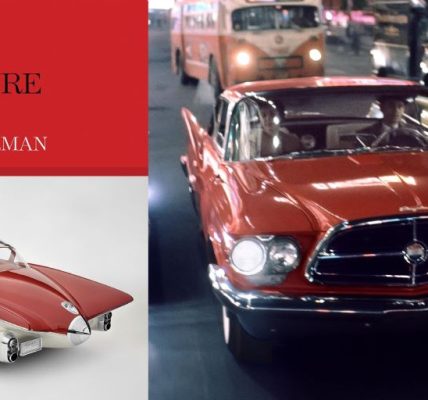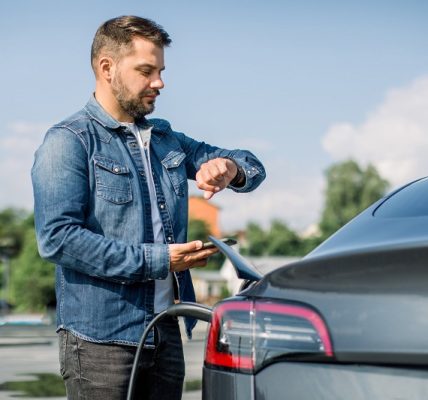The allure of the open road, the spontaneous adventure, or perhaps a necessity born of unexpected circumstances – sleeping in your car is a scenario many of us might encounter. But a crucial question often arises: is it truly safe to sleep in a car with the engine off? While it might seem like a straightforward “yes,” the reality is nuanced, encompassing a range of safety, legal, and comfort considerations.
This comprehensive guide will delve into the various facets of sleeping in a car with the engine off, helping you make informed decisions and prioritize your well-being. We’ll explore the potential dangers, legal ramifications, practical tips for a safer experience, and scenarios where it might be your best or only option.
The Primary Concern: Carbon Monoxide (CO) – A Misunderstood Threat
Let’s address the elephant in the room immediately: carbon monoxide poisoning. Many people instinctively associate sleeping in a car with this silent killer. However, it’s vital to understand the distinction.
With the engine OFF, the risk of carbon monoxide poisoning from your vehicle is virtually non-existent. Carbon monoxide is a byproduct of incomplete combustion, meaning it’s produced when fuel is burned. If your engine is not running, there is no combustion, and thus, no carbon monoxide being generated by your vehicle’s exhaust system.
The real danger of CO poisoning arises when the engine is running, especially in an enclosed space (like a garage) or if the exhaust system is compromised (e.g., a hole in the muffler allowing fumes to enter the cabin). Even idling for extended periods with windows closed can be risky due to potential leaks or exhaust backing up in specific weather conditions.
Therefore, if your engine is truly off, you can breathe a sigh of relief regarding CO from your car’s exhaust.
Other Critical Safety Considerations: Beyond CO
While CO from your vehicle’s engine is a non-issue when it’s off, other significant safety concerns demand your attention when contemplating a night in your car:
-
Temperature Extremes: The Silent Killer
This is arguably the most significant and often overlooked danger. Your car’s cabin is not designed for temperature regulation without the climate control system running.
- Extreme Cold: In frigid temperatures, hypothermia is a very real threat. Without the engine running to provide heat, the interior of your car will rapidly mirror the outside temperature. This can lead to dangerous drops in body temperature, even with warm clothing and blankets. Symptoms of hypothermia include shivering, confusion, drowsiness, and slurred speech.
- Extreme Heat: Conversely, in hot climates, the interior of a parked car can become a death trap in a shockingly short amount of time. Even on a moderately warm day, the temperature inside a car can soar to dangerous levels, leading to heatstroke. This is particularly perilous for children, the elderly, and pets, but can affect anyone. Symptoms of heatstroke include a high body temperature, hot and red skin, headache, dizziness, and confusion.
Mitigation: Always check the weather forecast. If temperatures are extreme, consider alternative sleeping arrangements. If you must sleep in your car in the cold, layer up, use a sleeping bag rated for low temperatures, and consider emergency blankets. In hot weather, park in the shade, crack windows (if safe to do so, see security below), and ensure adequate ventilation. Battery-operated fans can offer some relief, but they won’t prevent heatstroke in extreme conditions.
-
Security: Protecting Yourself and Your Valuables
Your car, while offering a degree of enclosure, is not an impenetrable fortress. Security is paramount when sleeping in an unfamiliar location.
- Vulnerability to Break-ins: Unlocked doors or open windows present an easy target for thieves. Even locked doors can be forced open by determined individuals.
- Personal Safety: Beyond property theft, there’s a risk of personal harm, especially if you’re in an isolated or high-crime area.
- Visibility: A car with someone sleeping inside can attract unwanted attention, making you a potential target.
Mitigation:
- Choose Your Location Wisely: Opt for well-lit, populated areas like rest stops, designated overnight parking lots (e.g., Walmart with permission, truck stops), or areas with security cameras. Avoid secluded or poorly lit spots.
- Lock All Doors: This seems obvious, but it’s easy to forget when settling in.
- Conceal Valuables: Don’t leave laptops, bags, or other tempting items visible. Store them in the trunk or under seats.
- Use Window Coverings: Reflective sunshades or dark towels can provide privacy and make it less obvious that someone is inside.
- Stay Alert: Be aware of your surroundings before and after settling in. If you feel uncomfortable about a location, trust your instincts and move.
- Keep Your Keys Accessible: In case you need to make a quick escape.
- Consider a Self-Defense Tool: A flashlight, pepper spray, or personal alarm can offer a sense of security. Check local laws regarding their legality.
-
Ventilation: The Unseen Danger of Stagnant Air
While not as immediately life-threatening as CO, poor ventilation can lead to discomfort and health issues. Over time, the air inside a closed car can become stale, filled with exhaled carbon dioxide, and potentially allergens or pollutants from the exterior.
Mitigation: Even in cold weather, it’s advisable to crack a window slightly (if safe to do so) for a few minutes before sleeping and periodically during the night to allow for some air exchange. If you’re concerned about security or insects, consider window screens designed for cars.
Legal Considerations: Where Can You Park and Sleep?
The legality of sleeping in your car varies significantly depending on the location. Ignorance of the law is not a defense, and you could face fines, towing, or even arrest.
- Public Streets and Residential Areas: Generally, sleeping in your car on public streets or in residential areas is frowned upon and often illegal, categorized as vagrancy, loitering, or obstructing traffic. Locals may report you, leading to police intervention.
- Rest Stops: Many state-run rest stops permit overnight parking for a limited duration (e.g., 3-4 hours). However, some explicitly prohibit sleeping or overnight stays. Check signage.
- Truck Stops: These are often more accommodating, as they cater to professional drivers who need to rest. Many have designated parking areas for cars and even showers or amenities.
- Walmart and Other Retailers: Some Walmart stores, especially those with 24-hour operations, permit overnight parking for RVs and campers. However, this policy is at the discretion of each store manager. Always ask permission at customer service before settling in. Other retailers may have similar policies, but it’s crucial to verify.
- National Forests and BLM Land (Bureau of Land Management): These federal lands often allow dispersed camping, including in vehicles, for free or a small fee. Check specific regulations and “Leave No Trace” principles.
- Private Property: You can only sleep in your car on private property with the explicit permission of the owner.
Always look for signage, consult local ordinances, or inquire with authorities if unsure. A quick online search for “Miami sleeping in car laws” can provide valuable information.
Tips for a More Comfortable and Safe Night’s Sleep
If you find yourself needing to sleep in your car, these tips can significantly enhance your safety and comfort:
- Choose Your Spot Wisely: As discussed, prioritize well-lit, safe, and legal locations. Avoid secluded or suspicious areas.
- Level Ground: Park on a relatively level surface for a more comfortable sleep and to prevent your car from rolling.
- Window Coverings: Use sunshades, blankets, or dark fabric to cover your windows. This provides privacy and blocks out light, making it harder for others to see you inside. It also helps regulate temperature.
- Ventilation: Crack windows slightly (if safe) or use window screens to allow for airflow, especially in warmer weather.
- Comfortable Bedding: A sleeping bag, air mattress, or foam pad can make a world of difference compared to sleeping directly on car seats. Bring a pillow from home.
- Layered Clothing: Dress in layers so you can adjust to temperature changes throughout the night.
- Hydration and Snacks: Keep water and non-perishable snacks accessible.
- Essentials Kit: Pack a bag with toiletries, a flashlight, first-aid supplies, phone charger, and any necessary medications.
- Emergency Preparedness: Have a fully charged phone, jumper cables, and a basic toolkit in your car.
- Bladder Management: Scope out nearby restrooms before settling in for the night to avoid late-night frantic searches.
- Listen to Your Gut: If a location feels unsafe or a situation feels off, leave immediately. Your intuition is a powerful safety tool.
- Consider a Portable Power Bank: To charge your phone or run small electronics like a fan without draining your car’s battery.
- Minimize Noise: Avoid slamming doors or making excessive noise that could draw attention.
- Have a Contingency Plan: Know where the nearest gas station, 24-hour diner, or emergency services are located in case you need to move quickly.
Related: Why Is My Car Leaking Water? Decoding the Mystery of the Puddle Under Your Ride
Scenarios Where Sleeping in Your Car Might Be Necessary

While it’s not an ideal long-term solution, sleeping in a car with the engine off can be a practical necessity in certain situations:
- Long Road Trips: Breaking up a long journey with a few hours of sleep at a rest stop.
- Unexpected Delays: Inclement weather, road closures, or vehicle breakdowns leaving you stranded.
- Saving Money on Accommodation: As a last resort to avoid hotel costs during budget travel.
- Emergency Situations: Evacuations or other unforeseen events where shelter is unavailable.
- Pre-Dawn Adventures: Getting an early start on a hike, fishing trip, or other outdoor activity near a trailhead.
When to Avoid Sleeping in Your Car
- Extreme Temperatures: If the forecast predicts dangerously hot or cold conditions.
- Feeling Unsafe: If your chosen location feels suspicious or you have a gut feeling of unease.
- Lack of Basic Necessities: If you don’t have adequate water, food, or warmth for the night.
- Illegal Parking: To avoid fines, towing, or confrontation with authorities.
- Chronic Conditions: If you have health conditions that make sleeping in a confined space or extreme temperatures risky.
Related: The Curious Case of the Loose Gas Cap: Why Your Check Engine Light Might Be Blaming It
Conclusion: Informed Decisions for Safe Car Sleeping
Sleeping in a car with the engine off is generally safe from the immediate threat of carbon monoxide poisoning from your vehicle’s exhaust. However, it presents a different set of challenges related to temperature extremes, security, and legalities.
By understanding these risks, planning meticulously, choosing your location wisely, and prioritizing your comfort and safety, you can make an informed decision about whether sleeping in your car is a viable and safe option for your particular circumstances. Remember, preparedness is key to transforming a potentially risky situation into a manageable and even peaceful experience. Always prioritize your well-being, and if ever in doubt, seek alternative accommodation.





